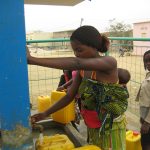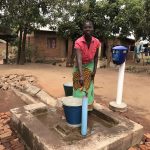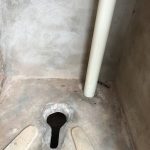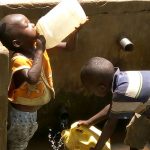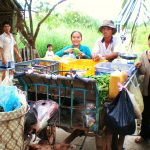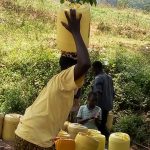Environment, WASH, and Health
DIG applies an integrated approach to supporting a clean environment; promoting good water, sanitation, and hygiene (WASH) services and practices; and improving the health of poor communities around the world. To promote a clean environment for the poor living in urban and peri-urban communities, DIG’s focus is on basic service delivery, solid waste management, reducing plastics in the environment, and WASH.
WASH is a critical component. DIG works with communities, WASH utilities, small service providers, and governments (municipal, county, and national) to improve WASH at all levels. This includes WASH service delivery, capacity building of utilities and other WASH service providers, stakeholder engagement in decision-making to ensure the longevity of WASH investments, and promoting gender mainstreaming in the WASH sector.
By focusing on some of the pillars of good health – clean water, reliable sanitation, and solid waste / ocean plastics management – we can improve the health status of entire communities. Our innovative programming helps poor families and communities around the world to live more healthy, vibrant lives.
Areas Of Expertise
Improving Water and Sanitation in Informal Settlements
Since 2007, the Development Innovations Group (DIG) has expanded and improved access to clean water,…
Solid Waste / Ocean Plastics Management
DIG improves municipal solid waste management (SWM) systems by identifying weaknesses and gaps, and building…
Capacity Building and Business Planning of Utilities and Small Service Providers
Since 2007, DIG has played a pivotal role in building the capacity of utilities and…
Innovative WASH Sector Financing
One of the key challenges facing all WASH service providers is financing for new infrastructure…
Urban Health
DIG’s approach to urban health is simple: by focusing on some of the pillars of…
Gender Mainstreaming in the WASH Sector
DIG promotes gender mainstreaming in the WASH sector by building the capacity of service providers…
Key Projects
Strategic Support for Water, Sanitation, and Hygiene Investments in Ethiopia
DIG conducted a rapid landscape analysis, facilitated a workshop, and identified key gaps and opportunities in the fecal sludge management value chain.
Liberia Municipal Water Project (LMWP)
DIG contributed to LMWP by conducting a comprehensive socioeconomic market assessment in the project cities, which included designing and overseeing the survey and analyzing the results to inform the design of the water system.
Market Assessment of Fecal Sludge Providers in Douala, Cameroon
DIG assessed the fecal sludge management market by examining the demand for services among the poor and their ability to pay, as well as the availability and quality of the services offered.
Liberia Collaborative Support for Health Systems Strengthening
Under USAID’s Collaborative Support for Health (CSH) Systems Strengthening program in Liberia, DIG provided direct support to Liberia’s Ministry of Public Works (MPW) to strengthen the Ministry’s capacity to manage water supply infrastructure improvements and deliver technical assistance to help achieve the goal of USAID’s CSH Program: improve the health status of Liberians.
Urbis – Urban Capacity Learning Laboratory
The focus of the Urbis program included slum improvement, provision of basic services (water and sanitation), land tenure regularization, and financing for the urban poor, with advocacy as a cross-cutting theme.
Kenya Integrated Water, Sanitation, and Hygiene Project (KIWASH)
The USAID-funded Kenya Integrated Water, Sanitation, and Hygiene (KIWASH) Project aimed to enhance the lives of more than 1 million Kenyans through access to improved sustainable water, sanitation and hygiene (WASH) services. The KIWASH Project promoted the scale-up of market-based WASH service delivery models. As a subcontractor to DAI, DIG assessed and strengthened the capacity of hundreds of small-scale, private water and sanitation providers (WSPs) to offer WASH services and products in nine focus counties. DIG led this work in close collaboration with the respective county governments. Ultimately, the KIWASH Project resulted in healthier and more prosperous communities throughout Kenya.

